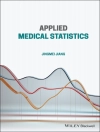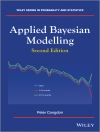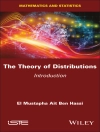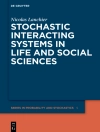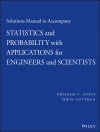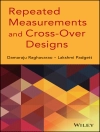This book provides an overview of the theories and applications on subgroups in the biopharmaceutical industry. Drawing from a range of expert perspectives in academia and industry, this collection offers an overarching dialogue about recent advances in biopharmaceutical applications, novel statistical and methodological developments, and potential future directions.
The volume covers topics in subgroups in clinical trial design; subgroup identification and personalized medicine; and general issues in subgroup analyses, including regulatory ones. Included chapters present current methods, theories, and case applications in the diverse field of subgroup application and analysis. Offering timely perspectives from a range of authoritative sources, the volume is designed to have wide appeal to professionals in the pharmaceutical industry and to graduate students and researchers in academe and government.
表中的内容
1. Data-driven and Confirmatory Subgroup Analysis in Clinical Trials.- 2. Subgroup Analysis – A View from Industry.- 3. Biomarker-Targeted Confirmatory Trials.- 4. Considerations on Subgroup Analysis in Design and Analysis of Multi-Regional Clinical Trials.- 5. Practical Subgroup Identification Strategies in Late-stage Clinical Trials.- 6. Exploratory Subgroup Identification for Biopharmaceutical Development.- 7. Logical Inference on Treatment Efficacy When Subgroup Exists.- 8. The GUIDE Approach to Subgroup Identification and Inference.- 9. Use of the VG (Virtual Twins Combined with GUIDE) Method in the Development of Precision Medicines.- 10. Subgroups Identification for Tailored Therapies: a System of Methods, a Framework for Consistent Methodology Evaluation, and an Integrated Learn-and-confirm Approach.- 11. Developing and Validating Predictive Classifiers in Randomized Clinical Trials.- 12. Issues Related to Subgroup Analysis.- 13. Subgroup Analysis with Partial Linear Model.- 14. Subgroup Analysis in the 21
st Century.- 15. Power of Statistical Tests for Subgroup Analysis in Meta-Analysis.- 16. Heterogeneity and Subgroup Analysis in Network Meta-Analysis.
关于作者
Naitee Ting is a fellow of the American Statistical Association (ASA) and a director in the Department of Biostatistics and Data Sciences at Boehringer-Ingelheim Pharmaceuticals, Inc. (BI). Before joining BI in September 2009, he was at Pfizer, Inc. for 22 years (1987-2009).
Joseph C. Cappelleri is an executive director of biostatistics in the Statistical Research and Data Science Center at Pfizer, Inc. As an adjunct professor, he has served on the faculties at Brown University (biostatistics), Tufts Medical Center (medicine), and the University of Connecticut (statistics). He has co-authored approximately 1000 external presentations and 500 publications on clinical and methodological topics, including on regression-discontinuity designs, meta-analysis, and health measurement scales. Dr. Cappelleri is the lead author of the book Patient-Reported Outcomes: Measurement, Implementation and Interpretation (2013, with Zou, Bushmakin, Alvir, Alemayehu, and Symonds), and has co-authored or co-edited two other books (one on Phase II clinical trials, the other on health economics and outcomes research). He is a Fellow of the American Statistical Association.
Shuyen Ho is a lead research biostatistician at UCB Bio Sciences in Raleigh, North Carolina. Prior to UCB, he was a biostatistics director at PAREXEL and Glaxo Smith Kline (GSK), and a group leader and research statistician at Merck. He has been involved in developing allergy, asthma, COPD (chronic obstructive pulmonary disease) and some other rare disease medications. Dr. Ho has also actively served the International Chinese Statistical Association (ICSA) as a board director, symposium and program committee chair, and executive director.
Ding-Geng (Din) Chen is the Wallace H. Kuralt Distinguished Professor and Director of the Consortium for Statistical Development and Consultation (CSDC) in the School of Social Work, and is jointly appointed as a clinical professorin the Department of Biostatistics at the UNC Gillings School of Global Health. He is an elected fellow of American Statistical Association. As a professor in biostatistics, he is interested in developing biostatistical methodologies in clinical trials, meta-analysis, Bayesian statistics and their applications to public health. As a professor in social work, he is interested in developing Bayesian social and health intervention research, cusp catastrophe modelling, statistical causal inferences, propensity score and structural-equation models (SEM). He is PI/Co-PI for several NIH R01 research projects in biostatistical methodology development and public health applications.






